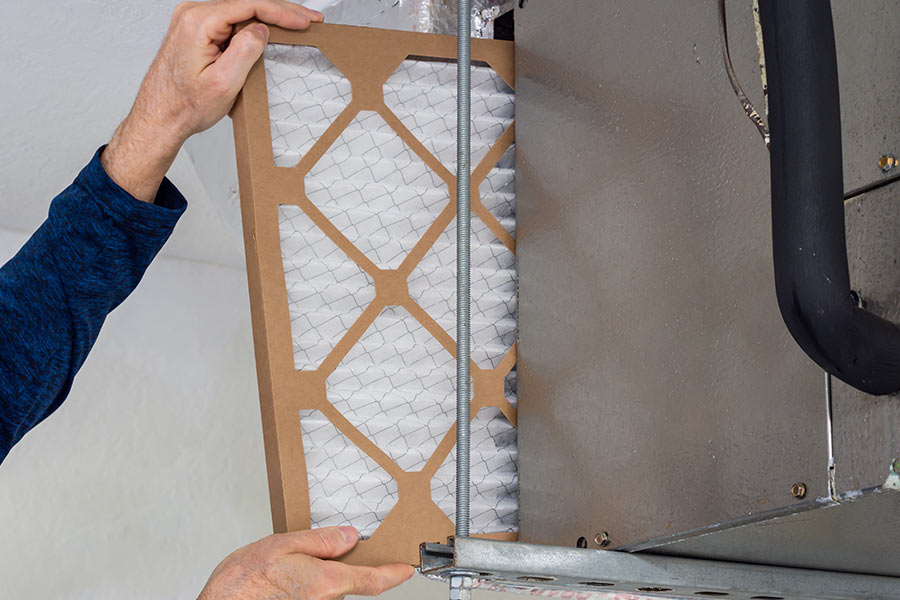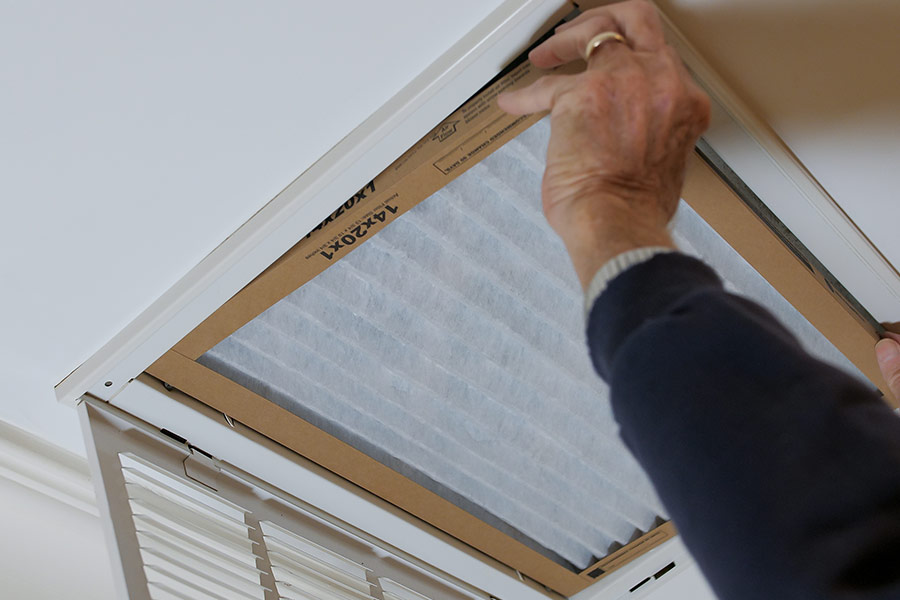Replacing your air filter is one of the most basic parts of HVAC preventative maintenance. “But how often should I replace my HVAC air filter?” you may ask.
Traditional wisdom holds that you should replace your HVAC air filter at least once every six months. If you live somewhere with relatively poor air quality or in dust-heavy areas, you may want to change filters once every three months or even monthly. As a general rule of thumb, higher MERV air filters require replacement more frequently than their lower MERV counterparts.
Contact us today to schedule HVAC services in Stone Oak, TX
How Does an Air Filter Work?
Air filters consist of a dense fiber mesh that traps tiny particulate matter that passes through the system. The filter catches particles while the system pushes out clean air. The air filter is usually located in the air handler, but it depends on the type and model of the unit. Air filters typically fit into small slots and are square or rectangular.
The basic design of air filters is why higher MERV filters require more regular changing. Denser fibers capture more particulate matter, so they get dirtier faster. The trade-off is they typically provide for better air quality as they remove more pollutants.
Factors Determining How Often You Should Change Your Air Filter
Below are some of the most relevant factors determining how often you should schedule air filter replacement for your HVAC system:
- Air quality. The lower the outdoor air quality, the more often you need to change your filters. For example, homes near major highways may have to change filters more often due to pollution from vehicle emissions. Similarly, those who live near industrial sites might have to change filters more often.
- Pets. Pet-friendly homes will have to change air filters more frequently than others. Cats and dogs produce a lot of dander and hair, which your filters will pick up the same as dust and pollen.
- Time of year. You should also adjust the frequency of filter changes on a seasonal basis. Filters require more frequent changes in the spring and summer due to the higher levels of dust, pollen, insects, etc.
- Occupancy. Homes with higher occupancies will clog their filters more quickly. Humans shed hair, skin cells, and dust that get into the air and inevitably find their way into your HVAC system.
- Personal habits. Personal habits, such as smoking or using a wood or charcoal grill, can also affect air filter changing schedules.
By remembering to change your filters regularly and relying on other home air cleaning solutions, you can improve your home’s air quality to your and your family’s benefit.
What Happens If You Don’t Replace Your Air Filter?
Not changing filters is detrimental for several reasons.
First, your HVAC performance will suffer drastically. Clogged filters increase system strain, making it harder for your HVAC to regulate indoor temperatures. You may notice your utility bills start to climb, even as HVAC performance shows no signs of improvement.
Second, air quality will suffer. Air with high particulate concentrations is associated with a range of physical and mental problems, including congestion, difficulty sleeping, reduced immune function, and increased discomfort. Poor air quality is especially bad for allergy-prone households because of the higher amounts of dust and pollen.
Third, clogged filters increase wear and tear. Your HVAC has to push harder to cope with the reduced airflow, which enhances the risk of a malfunction or breakdown. The lack of airflow can cause your air handler to overheat, which may pose a fire hazard.
What MERV Air Filter Should I Use?
For most homes, an air filter with a MERV rating between 8 and 13 should be more than adequate. However, it is important to match the MERV rating of your air filter with your system’s requirements. A filter that is too restrictive will reduce performance and may cause other problems.
Consult an experienced professional to ensure you are making the right choice.

HVAC and Indoor Air Quality Services
It is difficult to understate the importance of regular AC servicing to maintain good air quality. A professional can ensure that your system meets acceptable standards for air quality, promoting healthy sleep, better immune function, and a higher quality of life. If you have any more questions, such as “How often should I replace my HVAC air filter?” or would like to schedule indoor air quality testing, contact Apollo Air Heating & Cooling online or by phone today!

